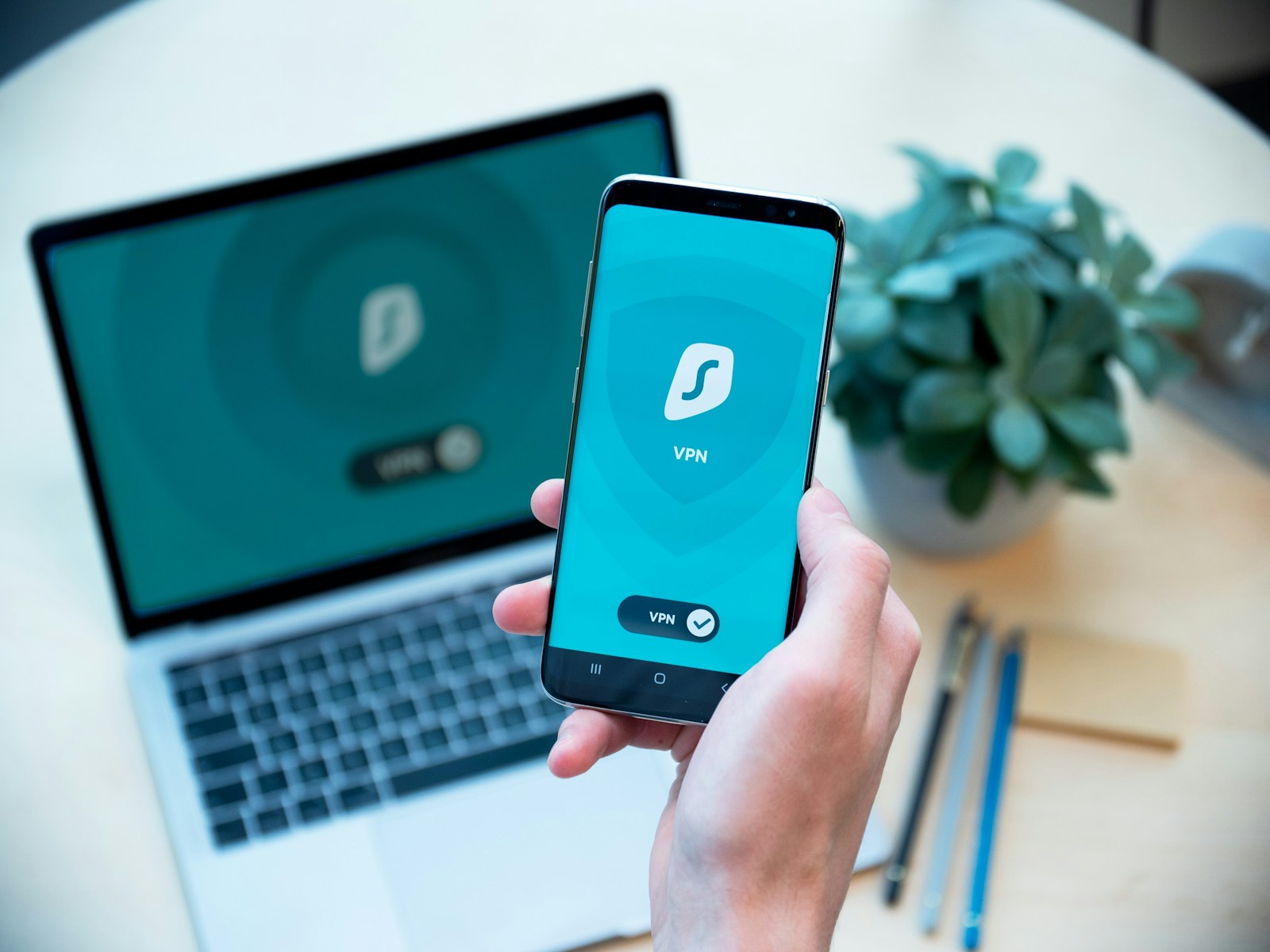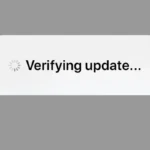Finding a good VPN for school can be tough. Many schools block websites and apps that students want to use. A VPN helps get around these blocks and keeps your online activity private from school networks.
The best free VPNs for school in 2025 include options like SetupVPN and ExpressVPN. Some students also like Urban VPN since it has no data caps and runs on most devices. When picking a VPN, students should look for speed, security, and ease of use.
1. Proton VPN
Proton VPN offers one of the best free VPN options for students trying to bypass school internet restrictions. It stands out because it’s the only free VPN with no data limits, making it perfect for school use where you need constant protection.
Unlike other free VPNs, Proton doesn’t show ads or track your online activities. This makes it a safe choice for students who want to protect their privacy while using school Wi-Fi.
The free plan gives you access to servers in three countries. While this is fewer than the paid version, it’s enough for basic school needs like unblocking websites or protecting your data.
Some students report difficulties connecting to Proton VPN on school networks. This happens because schools often block VPN connections. Try different server locations or connection protocols if you face this issue.
Proton VPN apps work on many devices including phones, tablets, and computers. Students can install it on their personal devices to use at school without much technical knowledge.
Speed is another plus for Proton’s free plan. Unlike other free VPNs that slow down your connection, Proton maintains decent speeds even on the free tier.
Security features include strong encryption and a strict no-logs policy. These protect student data from both school monitoring systems and potential hackers on shared networks.
The company behind Proton VPN is based in Switzerland, a country with strong privacy laws. This adds another layer of trust for users concerned about their online privacy.
For students who need more features, Proton offers paid plans with more server options and additional features. But the free version works well for most basic school needs.
CNET has named Proton VPN the best free VPN on the market, which speaks to its quality and reliability for students seeking a no-cost solution.
2. ExpressVPN
ExpressVPN is a top choice for students needing to bypass school internet restrictions. It offers strong security features and fast speeds that make it ideal for educational needs.
While ExpressVPN isn’t free, it does offer a 30-day money-back guarantee, which students can use to test the service risk-free. This policy lets users try all features before committing.
The app works on many devices including phones, tablets, and laptops. Students can protect up to five devices with one account, making it cost-effective for multiple gadgets.
ExpressVPN stands out for its reliable security and privacy features. It uses strong encryption to keep student data safe from prying eyes.
One key benefit is its obfuscation technology. This makes VPN traffic look like normal internet traffic, helping students get around even strict school firewalls.
Speed is another strong point for ExpressVPN. Students can stream videos, download study materials, and browse websites without annoying lag or buffering.
Some users report that ExpressVPN may not work on all school networks. According to Reddit discussions, certain highly restricted school systems have successfully blocked ExpressVPN.
For international students, ExpressVPN offers servers in 94 countries. This wide coverage helps access region-locked content for research or keeping up with news from home.
The app is easy to use with a simple on/off button. Students don’t need technical skills to get started – just download, install, and connect.
ExpressVPN is particularly helpful for students in countries with heavy internet restrictions. Its obfuscation works on all servers, unlike some VPNs that limit this feature.
For group projects, ExpressVPN provides secure file sharing between classmates and teachers. This keeps sensitive academic work private.
The main drawback is the price. ExpressVPN costs more than many other VPN options, making it less appealing for budget-conscious students.
3. SetupVPN
SetupVPN is a free VPN service that has gained popularity among students. It offers unlimited bandwidth at no cost, making it accessible for everyone who needs to bypass school network restrictions.
Students can easily add SetupVPN as a browser extension for Chrome or Firefox. The Chrome extension has been well-received by many users. Installing it takes just a few clicks, and the interface is simple enough for beginners to use.
One of the main benefits of SetupVPN is its ability to unblock websites that are restricted in schools. With a single click, students can change their IP address and location to access blocked content.
Security is another important feature of SetupVPN. It provides military-grade encryption to protect user data. This helps keep browsing activities private from network administrators who might be monitoring school internet usage.
Many students have shared positive experiences with this VPN. According to user feedback, SetupVPN has proven to be reliably fast for everyday school tasks. One user mentioned they had used it for several months with good results and would recommend it to others.
The Firefox version of SetupVPN also offers similar features. The Firefox extension lets users bypass restrictions with minimal setup required.
It’s worth noting that some schools have recently upgraded their firewalls. This means certain free VPNs might not work as effectively as before. However, SetupVPN continues to be an option worth trying for basic unblocking needs.
SetupVPN stands out for its simplicity and zero-cost approach. Students don’t need technical skills to use it, which makes it attractive for those new to VPNs.
4. Urban VPN
Urban VPN stands out as a free option for students looking to bypass school internet restrictions. This VPN service offers unlimited bandwidth which is great for streaming videos or downloading files at school.
Students can connect to over 618 servers across 82 countries using Urban VPN. This wide range of servers helps you change your IP address easily and keep your online activities private from school network monitoring.
The service works on multiple devices including Windows computers that most schools use. Their Windows VPN is completely free and optimized for high-speed connections.
Urban VPN also offers mobile apps for students who need protection on their phones. The Android app provides quick activation and can unblock websites that school networks typically restrict.
One big advantage of this service is its no-cost model. Unlike many VPNs that limit free users, Urban VPN doesn’t put caps on data usage. This makes it useful for students who need continuous protection throughout the school day.
The VPN is easy to use with a simple interface. Students don’t need technical knowledge to get started, making it good for first-time VPN users.
For privacy, Urban VPN helps hide your browsing history from school administrators. This lets students access blocked sites like social media or gaming platforms during breaks.
Speed is another positive aspect of this service. Urban VPN is optimized for fast connections, which helps when trying to watch videos or join online classes through your own connection rather than school Wi-Fi.
Students should know that completely free VPNs sometimes have drawbacks. They might be slower during peak usage times when many people are connected to the same servers.
Urban VPN works well for basic school needs like unblocking websites and protecting privacy on school networks. It offers a good balance of features without requiring payment information.
5. NordVPN
NordVPN ranks as a top choice for students needing to bypass school network restrictions. It offers strong security features that keep your online activities private on school Wi-Fi networks.
The app works well on many devices including phones, tablets, and laptops. Students can connect up to six devices at once with one account, making it useful for all their tech.
NordVPN uses strong AES-256 encryption to protect your data. This keeps your browsing habits hidden from school network administrators.
Many students find that NordVPN can bypass school firewalls effectively. This lets them access blocked websites and apps that might be needed for research or personal use.
The service offers special pricing for students. These student discounts make it more affordable on a tight budget.
Some users on Reddit have reported success using NordVPN to access blocked apps on school networks. The service seems to work when many free options fail.
NordVPN is legal to use at school, though it’s worth checking your school’s policy first. It simply secures your internet traffic and hides your IP address.
The app is easy to use with a simple interface. Students can connect to servers in different countries with just one click.
Speed is another strong point for NordVPN. It maintains good connection speeds even when using public school Wi-Fi networks.
While NordVPN isn’t free, it offers better reliability than most free VPNs. Free VPNs often get blocked by upgraded school firewalls.
NordVPN works on all major platforms including Windows, Mac, iOS, and Android. This makes it flexible for whatever device a student brings to school.
6. Hide.me
Hide.me offers a free VPN service that works well for students needing to bypass school internet restrictions. This service stands out because it doesn’t show ads or log your information.
The free plan has some limits but still provides solid protection. Students can connect to servers in a few locations and get 10GB of data each month. This is enough for basic school research and some social media use.
Hide.me is known for its strong privacy features. The company follows a strict no-logs policy, which means they don’t track what websites you visit. This keeps your online activities private from both your school and others.
Speed can be an issue with free VPNs, but Hide.me performs better than many others. You can still watch videos and browse websites without much lag, though premium users get faster speeds.
Setting up Hide.me is easy. You can download their app for Windows computers or get it from the App Store for Apple devices. The app has a simple design that even new VPN users can figure out quickly.
The free version works on one device at a time. This is usually enough for a student who wants to use it on their laptop or phone at school. The connection is stable and rarely drops unexpectedly.
Hide.me doesn’t limit the types of traffic you can use. This means you can access video sites, gaming platforms, or social media that your school might block. The service can get around most school firewalls without much trouble.
Customer support is available even for free users. If you have trouble setting up the VPN or can’t connect to a certain website, their team can help. This is useful for students who aren’t tech experts.
For students concerned about security, Hide.me uses strong encryption. This protects your data from anyone trying to see what you’re doing online. The VPN also has a kill switch that cuts your internet if the VPN connection drops.
7. Betternet
Betternet offers a secure, private connection for students who need VPN services at school. This free VPN works on multiple platforms including Windows, Mac, iOS, and Android.
Students can enjoy the simple interface that Betternet provides. The app lets users connect to VPN servers with just a single tap, making it easy for anyone to use without technical knowledge.
Betternet claims to provide high-speed VPN servers that help students bypass school network restrictions. The service operates servers in over 115 locations worldwide, giving users many options for connection points.
For iPhone and iPad users, Betternet is available through the App Store. The mobile version offers the same quick connection features as its desktop counterpart.
Windows users can download Betternet directly from the official website. The Windows version comes with a user-friendly interface that lets students connect to VPN servers quickly.
Students should be aware of potential security concerns with free VPN services. Some Reddit users have warned about possible security risks when using Betternet and other free VPN services.
The free version of Betternet comes with some limitations. Users may experience occasional ads and might not get the same speed as premium VPN services offer.
Betternet doesn’t require users to create an account to use the service. This makes it a quick option for students who need immediate access to a VPN without going through a registration process.
Battery drain can be an issue when using Betternet on mobile devices. Students should monitor their battery levels when using the VPN for extended periods at school.
Data limits may apply to the free version of Betternet. Students who need to transfer large files might find these limitations restrictive for their needs.
8. TunnelBear
TunnelBear is a popular free VPN option for students needing access at school. It offers a simple interface that even beginners can understand quickly.
This VPN provides 2GB of free data every month with no credit card required. While this limit isn’t huge, it’s enough for occasional use to bypass school restrictions.
TunnelBear’s cute bear-themed design makes it appealing, but don’t let that fool you – it takes security seriously. It uses strong encryption to keep student data safe when using school Wi-Fi.
The service works on multiple devices including computers, phones, and tablets. Students can download TunnelBear for Mac, PC, iOS, Android, and even as a browser extension.
Speed is decent with TunnelBear’s free plan, though not as fast as paid options. Most students find it quick enough for basic browsing and research tasks at school.
One big advantage is TunnelBear’s trustworthiness. The company runs regular security audits to prove they protect user privacy. This makes it a safer choice than many other free VPNs.
The free version lets users connect to servers in several countries. This helps students access region-restricted educational content that might be useful for projects.
TunnelBear keeps no logs of user activity, which is important for student privacy. Many free VPNs collect and sell user data, but TunnelBear doesn’t.
The apps are easy to use – just pick a country and click to connect. No technical knowledge needed, perfect for students who just want something that works.
If students need more data, they can tweet about TunnelBear for an extra 1GB. There’s also the option to upgrade to a paid plan if they regularly need more data.
TunnelBear has reliable customer support through email, which is uncommon for free VPNs. Students can get help if they have trouble setting it up on school devices.
The major drawback is the data cap. Students who need to stream videos or download large files will quickly hit the 2GB limit.
9. Windscribe
Windscribe stands out as a popular free VPN option for students. It offers both a free VPN plan and paid versions, giving students flexibility based on their needs.
The free plan includes 10GB of data monthly when you verify your email. This amount works well for basic school research and occasional video streaming without paying anything.
Students will find Windscribe easy to use across many devices. The company makes apps for computers, phones, and even a Chrome extension that installs quickly.
Privacy matters for student research. Windscribe encrypts browsing activity and blocks ads automatically, helping students focus on their work without distractions.
The service has earned positive reviews from tech experts. ZDNet calls it the second best free VPN they recommend, highlighting its flexibility compared to competitors.
Students can sign up without sharing much personal information. PCMag specifically praised Windscribe’s easy and anonymous signup process in their review.
The free plan doesn’t show ads or keep logs of what users do online. This creates a more secure browsing experience than many other free VPNs that might track student activities.
Server options remain somewhat limited on the free plan. Students get access to servers in about 10 countries, which is fewer than the paid version but still enough for most school needs.
Connection speeds work well for research and basic streaming. The VPN maintains decent performance even on the free tier, allowing students to complete assignments without frustrating delays.
Windscribe also includes a firewall feature that blocks internet access if the VPN connection drops. This extra protection helps keep student browsing private even during connection issues.
10. Hotspot Shield
Hotspot Shield offers a free VPN plan that works well for students. This basic version is perfect for casual internet users who need simple protection at school.
One of the biggest advantages of Hotspot Shield’s free version is that it actually works on school networks. Many students report that when other VPNs fail to bypass school restrictions, Hotspot Shield still works.
The free plan does have some limits. Users can only connect to US servers and get 500MB of data per day. This is enough for basic browsing and some social media use, but not for streaming videos or large downloads.
Hotspot Shield helps students get around network filters. It works by replacing your real IP address with a temporary one from their servers. This lets users bypass school firewalls that block certain websites.
The app is easy to use. Students can download it quickly and connect with just one click. No technical knowledge is needed to get started.
Speed is another strong point for this VPN. Hotspot Shield is known for its fast connections, which is important when using school Wi-Fi that might already be slow.
The free version only allows one device connection at a time. This works fine for most students who just need protection on their phone or laptop during school hours.
Privacy features in Hotspot Shield help keep student browsing activities hidden from school network administrators. This can be useful when working on personal projects during free periods.
Students should note that the free version shows ads. These can be annoying but are the trade-off for getting free VPN service that actually works on school networks.
For those who need more data or want to connect multiple devices, paid plans are available. However, many high school students find the free version meets their basic needs for school internet access.
Understanding VPNs in Educational Settings
VPNs create secure connections that help students access blocked content while protecting their online privacy at school. They work by encrypting data and masking IP addresses, which can be useful in educational environments with strict network policies.
Why Schools Implement Network Restrictions
Schools set up network restrictions for several good reasons. They need to protect students from harmful content and keep them focused on schoolwork instead of social media or games.
Many schools block:
- Social media platforms
- Gaming websites
- Streaming services
- Messaging apps
- Some research websites
These blocks help schools comply with laws like the Children’s Internet Protection Act (CIPA). This law requires schools to filter internet access and protect students from inappropriate content.
Schools also restrict network access to save bandwidth. When hundreds of students use the internet at once, limiting access to high-bandwidth sites like YouTube helps maintain network speed for academic purposes.
Benefits of Using a VPN at School
A VPN offers several advantages for students who need more internet freedom. It allows access to blocked educational resources that might be accidentally restricted by overzealous filters.
Key benefits include:
- Enhanced privacy: VPNs encrypt your data, keeping your browsing private from network administrators
- Access to research materials: Some academic websites may be mistakenly blocked
- Protection on public WiFi: School networks can be vulnerable to hackers
Students can use VPNs to work on group projects that require communication tools blocked by school networks. This is especially helpful for accessing collaboration platforms needed for assignments.
VPNs like NordVPN can bypass school firewalls while maintaining security. This balance allows students to access needed resources without compromising safety.
Selecting the Right VPN for School Use
Finding a VPN that works well for school requires careful consideration of several factors. Students need solutions that can bypass network restrictions while maintaining privacy and security.
Key Features to Consider
When choosing a VPN for school use, look for these essential features:
Strong Encryption: Choose VPNs with AES-256 encryption to protect your data.
No-logs Policy: Make sure the VPN doesn’t track or store your online activities.
Server Locations: More servers mean better chances of finding fast connections that work on school networks.
Speed: Fast connection speeds are crucial for streaming educational videos and downloading study materials without frustrating delays.
Device Compatibility: The best VPNs work across multiple platforms (Windows, Mac, iOS, Android).
Many students find that NordVPN and Surfshark offer the best balance of features for school use. Free options like Proton VPN can work well, but may have limitations.
Balancing Security and Accessibility
Finding the right balance between security and ease of use is key. Many school networks have recently upgraded their firewalls, making free VPNs less effective than before.
Paid vs. Free Options:
- Paid: Better at bypassing school blocks, faster speeds, no data caps
- Free: Limited data, fewer servers, possible connection issues
When security matters most, premium options like ExpressVPN provide better protection for sharing files with classmates and teachers. Some VPNs offer student discounts, making them more affordable.
For those who need a completely free solution, Urban VPN has no data caps and works on most devices. Testing different VPNs with free trials can help find which one works best with your specific school network.
Frequently Asked Questions
Students and parents often search for free VPN solutions to get around school restrictions. Here are answers to common questions about using VPNs on school networks.
What is the best free VPN service for use on a school Chromebook?
Proton VPN offers a solid free option for Chromebooks. It doesn’t limit your data usage, which is rare for free VPNs.
The Chrome browser extension for SetupVPN works well on Chromebooks and is easy to install. It provides enough speed for basic browsing.
Students should remember that Chromebooks from schools may have admin restrictions that block VPN installations.
How can I find a reliable VPN that is not blocked by school WiFi networks?
Look for VPNs with obfuscated servers that hide VPN traffic. NordVPN offers this feature and can bypass many school firewalls.
Try VPNs with multiple connection protocols like OpenVPN, WireGuard, and IKEv2. This gives you options if one protocol is blocked.
Testing several free VPNs before committing can help find one that works on your specific school network.
Are there any completely free VPNs that work effectively for school networks on Android devices?
Proton VPN’s free plan works well on Android and doesn’t cap data usage. This makes it good for daily school use.
Urban VPN provides unlimited data and works on Android devices. Users report success on many school networks.
Free VPNs with Android apps often work better than browser extensions for accessing blocked content on school WiFi.
What are the best free VPN options for iPhones to bypass school WiFi restrictions?
Proton VPN offers a reliable free iOS app that many students use successfully. It provides good security and doesn’t limit bandwidth.
ExpressVPN is highly rated for iPhones though its free trial is limited. It’s very effective at bypassing school restrictions.
iOS users should check for VPNs that support Apple’s VPN protocols for better performance on school networks.
Which free VPN services are recommended by users on forums such as Reddit for school purposes?
Reddit users frequently recommend Proton VPN’s free plan. Many posts highlight its unlimited data and trustworthy privacy policy.
Outline VPN gets mentioned often on Reddit as a DIY option. Users appreciate its simplicity and effectiveness on school networks.
Forums suggest avoiding completely free VPNs with ads, as they often sell user data and provide poor performance.
Can ProtonVPN or similar services provide free, unblocked access for school-related internet usage?
Yes, Proton VPN’s free plan is recommended by PCMag. It offers unlimited data without ads and works well for basic school research needs.
The free plan includes servers in three countries. This is usually enough for bypassing school filters. However, speeds may be slower than paid options.
Proton VPN has a strict no-logs policy, making it safer than many other free VPNs for students concerned about privacy.







